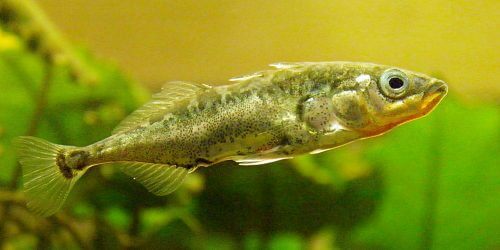Animals can adapt their personalities to the dynamics that prevail in the group, but in the end it remains stable

Anyone who owns pets will tell you that humans aren't the only ones with personalities. And dogs and cats aren't the only animals with their own personalities. In recent years, scientists have found that animals of many species, from hermit crabs to rats and fish, have unique private tendencies expressed in behavioral differences that are consistently maintained over time and in different situations.
But how do social situations affect the personality of each animal? Christos S. Ioano And his partners tried to find out with the help of a small fish, A three-spined prickly pear His name, living in salty coastal waters in the northern half of the planet. "You can find them in nature both as individuals and in social groups," and therefore they are most suitable for personal assessments in different situations, says Ioano.
The researchers took 80 fish and placed them under a protective cover at one end of a tank of water. At the other end was food. For these fish, crossing the tank to get to the food seems dangerous because usually in the wild, predators endanger them in open water.
The behavior of each fish remained consistent over several days. The bolder fish rushed out of the safe haven and swam towards the food. The fearful delayed leaving the safe environment and they crossed the tank more carefully. But when the researchers put 10 fish together under the same cover, the individual behavior of each fish was blurred. As with humans, the more daring served as group leaders, but as leaders they exercised more caution. "The first fish left the safe environment relatively quickly, but it seems almost as if they realize that the other fish are not swimming in their wake, and that they are waiting for the others to join," says Ioano. When the researchers later broke up the group, each of the fish returned to their original individual behavior. The results have been published In September 2016 in the journal Science Advances.
From the new findings, it appears that the group dynamic obscures the personality of the individual, and the researchers say that this is the first time that such oppression has been clearly linked to the reason that explains it: the need to align with the group when dangerous decisions have to be made.
Mike Webster, an animal behavior researcher at the University of St. Andrews, who did not participate in the research, explains that researchers who deal with the individual nature of animals in the past focused on individuals and ignored their behavior in groups, while group behavior researchers focused on groups and downplayed the importance of the differences between individuals. According to him, "this research actually combines these two research approaches," and shows that the personalities of animals have flexibility, but also consistency.
about the writer
Jason J. Goldman - Science reporter from Los Angeles. He writes on human and animal behavior, wildlife biology, ecology and environmental conservation for Scientific American, the BBC and other magazines. He completed his PhD in the study of avian cognition at the University of Southern California. He is one of the editors of the book Science Blogs: A Basic Guide (Yale University Press, 2016). He enjoys sharing his knowledge about wildlife on television and radio with others and lectures to the general public about wildlife and science communication.
